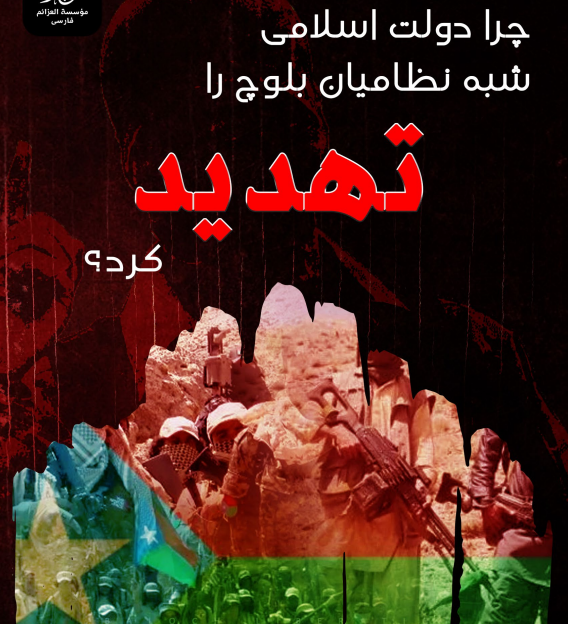The booklet outlines the group’s narrative and justification for future retaliation.
In a recently released 12-page-long Persian language booklet by the IS Khorasan-affiliated Al-Azaim Media Foundation, the Islamic State has issued a warning to Baloch nationalist militants, accusing them of betrayal and collusion with the United States, Afghan Taliban, and Pakistani authorities.
The document centers on an incident that took place during Ramadan, in which Baloch militants allegedly launched a surprise assault on IS-K fighters stationed in the mountains of Balochistan. The Islamic State claims that nearly 30 of its members, including foreign fighters from various parts of the world, were killed in the attack.
Allegations of Treachery
IS-K accuses the Baloch Liberation Army (BLA) and the Baloch Liberation Front (BLF) of acting as proxies for the international actors against the Islamic State. According to the group, the militants identified ISIS hideouts and targeted them without warning, allegedly for financial gain.
“You thought you could kill a few of our brothers, collect dollars, and walk away?” the publication states. “No. The Islamic State is waiting.”
The Islamic State denies any association with the Pakistani military or intelligence agencies. The document outlines years of drone strikes, supply shortages, and lack of logistical support as evidence that its fighters operate independently and under duress.
The group compares its situation to that of the Afghan Taliban, who it claims received passports, safe zones, and state-sponsored infrastructure privileges that ISK says it has never enjoyed.
“If Pakistan backed us,” it reads, “why were our camps bombed, our routes blocked, and our fighters left to starve in the mountains?”
Shift in Strategy
The group contends that it refrained from engaging Baloch nationalist groups for nearly a decade to focus on its higher objective: dismantling the Pakistani state. However, it claims the recent attack marks a turning point.
Until now, IS-K says it hoped to win over Baloch militants to its ideological cause. But in light of what it calls a “grievous betrayal,” it now considers these groups as legitimate targets.
Despite the strong rhetoric, the Islamic State claims it does not target ordinary Baloch civilians. The document explicitly distinguishes between armed nationalist fighters and the general population, urging civilians to avoid involvement with the groups it deems apostate.
“To the Muslim people of Balochistan,” it states, “your blood and property are safe—unless you take up arms or support the enemies of Islam.”
Criticised Nationalism
The publication denounces ethnic nationalism as a “rotten ideology” rooted in tribalism and jahiliyyah (pre-Islamic ignorance). It cites religious texts to support its claim that nationalism is incompatible with Islam and calls for unity under the banner of Sharia.
“Balochistan will never achieve true freedom through tribal flags,” the document asserts. “Only under the banner of monotheism will liberation come,” and it calls the Baloch community to join their ranks against the repression of Pakistan.
In its conclusion, the Islamic State vows revenge for the killings, warning that its response will be swift and severe.
“You have dug your graves,” it warns. “The days of reckoning are near.”
While the authenticity and operational significance of the document are still under review, its message signals a potential escalation in the region’s already volatile conflict, where separatists, jihadists, and state forces battle for influence and control.
